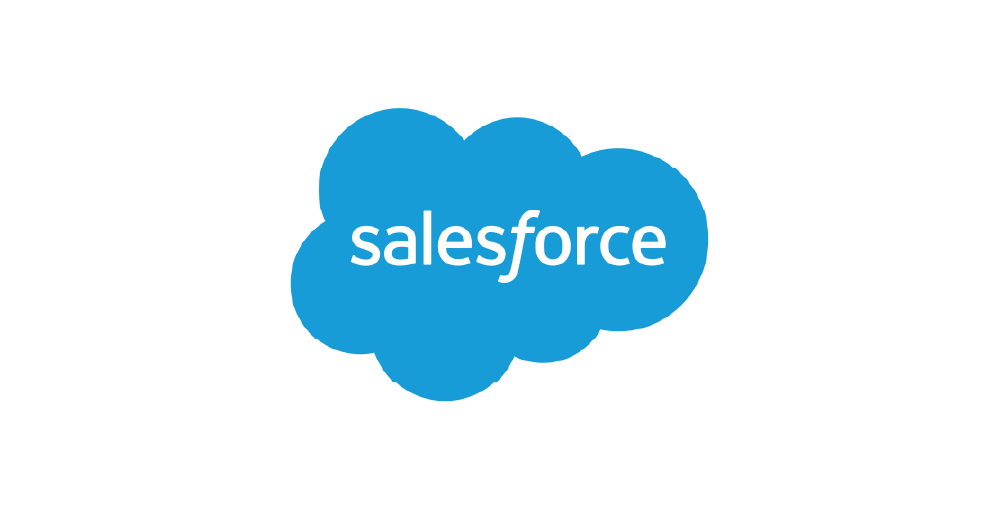Salesforce Sales Tax
Get to know Salesforce sales tax basics
Salesforce is a monolith of cloud-based software that is leading CRM (Customer Relationship Management) into the future. At least, that’s how it began. Now, Salesforce does pretty much everything and anything for every type of business you can imagine. That’s because the foundation of Salesforce is in developing individual cloud-based software for businesses. In fact, many industries have begun creating jobs specifically for certified Salesforce Developers and Administrators to seamlessly integrate their products and services and increase their bottom line. If you use Salesforce or have considered integrating the software into your business model, the way you calculate and collect sales tax will depend upon which product you use. In this article, we will focus on two main retailer products and their tax configurations: Salesforce CPQ and Salesforce Commerce Cloud.
Sales Tax Overview
Table of Contents
Marketplace Responsibility
Some online platforms used for selling products are considered Marketplace Facilitators. This means that the platform is responsible for collecting and remitting sales tax. This removes the responsibility to collect and remit sales tax as a seller on those platforms. Salesforce provides the software used to sell your products and services, but it is not a Marketplace Facilitator, and so the user must collect and file sales tax for their business.
Seller Responsibility
Before enabling tax collection for any online store, it is important to evaluate where you have sales tax nexus and whether your products are taxable in those jurisdictions.
The steps to determining and maintaining a nexus are:
- Complete a thorough sales tax nexus review for both physical nexus and economic nexus.
- Register necessary sales tax account.
- Obtain sales tax certificates.
- Enable sales tax collection on all required platforms for the registered jurisdictions.
- File sales tax returns and maintain sales tax account.
After you have the necessary certificates and accounts set up to file in your jurisdictions, you can configure tax calculation settings for the type of Salesforce platform you use.
Salesforce Commerce Cloud:
Salesforce Commerce Cloud is an industry-leading commerce platform for B2C and B2B. As it is cloud-based, it is coded for on-the-go use across all devices and channels, from mobile phones to social media to web stores. Commerce Cloud is powered by AI, and with it you can create Campaigns, enable One-Touch Payment and manage multiple Storefronts. Christy Sports, HermanMiller and Elf all use Commerce Cloud for B2C and B2B.
Commerce Cloud uses relatively basic tax configurations, so if your products qualify for default tax rates this may be the option for you. The tax calculations are based on shipping address and product, but you can exclude certain products and customer accounts from being taxed if needed.
Tax calculation in Commerce Cloud is enabled from the org (short for organization), which is essentially the online version of an Employee’s Only door. Here you can view and edit your storefront’s data, customer information and products.
For detailed step-by-step instructions on how to setup Salesforce Commerce Cloud tax calculation, click here.
Salesforce CPQ:
Salesforce CPQ (Configure, Price, Quote), is a useful product for businesses that have complex models and services and need to automate quotes and proposals quickly. However, Salesforce CPQ only estimates tax at a quote level and does not have the capability of calculating and collecting actual tax accrued. For accurate tax calculation with CPQ, you can either use an external tax engine, (AvaTax is available pre-packaged), or use Salesforce Billing, which is an add-on package that fully integrates with CPQ. After a sales representative finalizes a quote and places an order, Salesforce Billing “picks-up” the order for invoicing and payment.
To view more information on how Salesforce Billing works with CPQ and third-party tax engines, click here.
Sales Tax Collection
If your products comply to simple tax calculation rules, (i.e., operating out of a country which defines tax rates at a national level), or VAT (which is a flat tax levy), collecting tax via Salesforce Billing is fine. However, Salesforce acknowledges that its internal tax tables are not meant to replace actual tax engines. Tax rules can get messy and are subject to change at will, and unless an engine is setup to adapt to such complexity, there is a tendency for things to slip through the cracks. Not a good thing for anyone running a business when you know that, at any time, an audit, late fees and penalties can rip the rug out from under your feet.
Salesforce lists the external tax engines that are easiest to integrate with all of Salesforce products in its AppExchange. A few examples of these are: Avalara, CCH SureTax, TaxJar and Vertex.
To learn how to configure an external tax engine with Salesforce Billing, click here.
Sales Tax Reports
As stated above, sales tax collection out of Salesforce is rudimentary. That goes for reports as well. The only way to calculate a sales tax report out of Salesforce is to reconcile against information in your sales reports and product pricing, and this only accurate for a company that uses VAT and operates out of a single country with set national tax rates.
For anyone using Salesforce to sell products and selling into the United States (or any other country with varying tax rules and rates), sales tax reports must be pulled from whichever third-party tax integration you use.
Additional Platforms
Contact Us
Use the form below to quickly send us an inquiry.
OUR news
Latest from our Blog
Get caught up on tax law changes, IRS updates, return deadlines, and so much more.
Make Way for Autopay: A Look at our Billing Changes
In the last six months, we have made several billing changes aimed at simplifying and improving sales tax management...
Streamlining Sales Tax Services on the Client Portal
Let's face it: sales tax is confusing, and no one likes to pay it, file it, or be responsible for it. At...
Managing Business Changes in the SalesTaxSolutions.US Client Portal
If you know anything about sales tax, you know that it's constantly changing. At SalesTaxSolutions.US, we are also...




